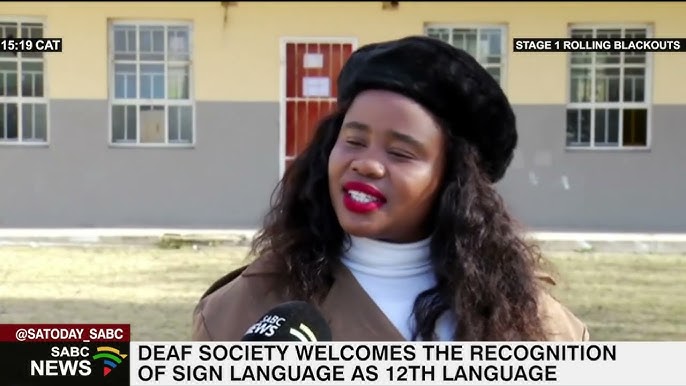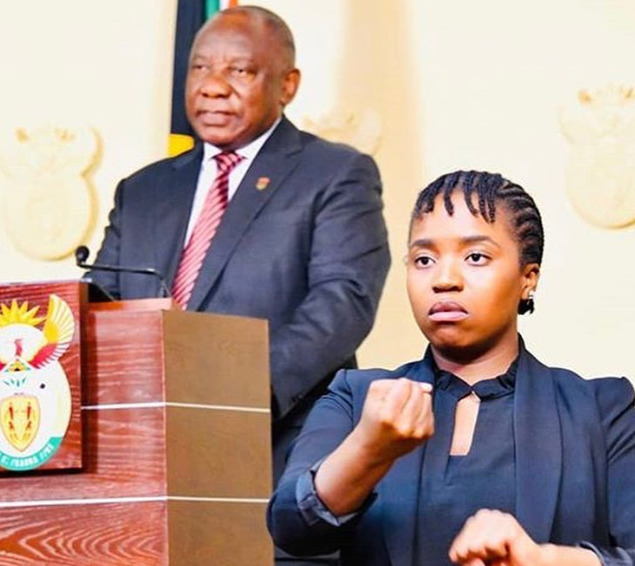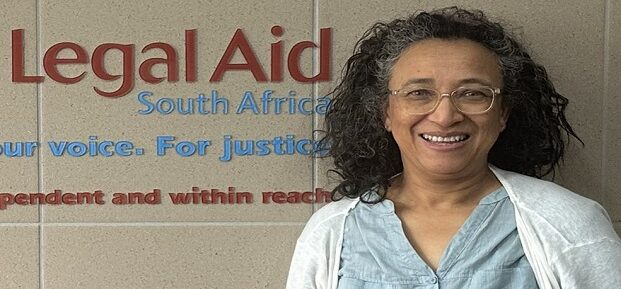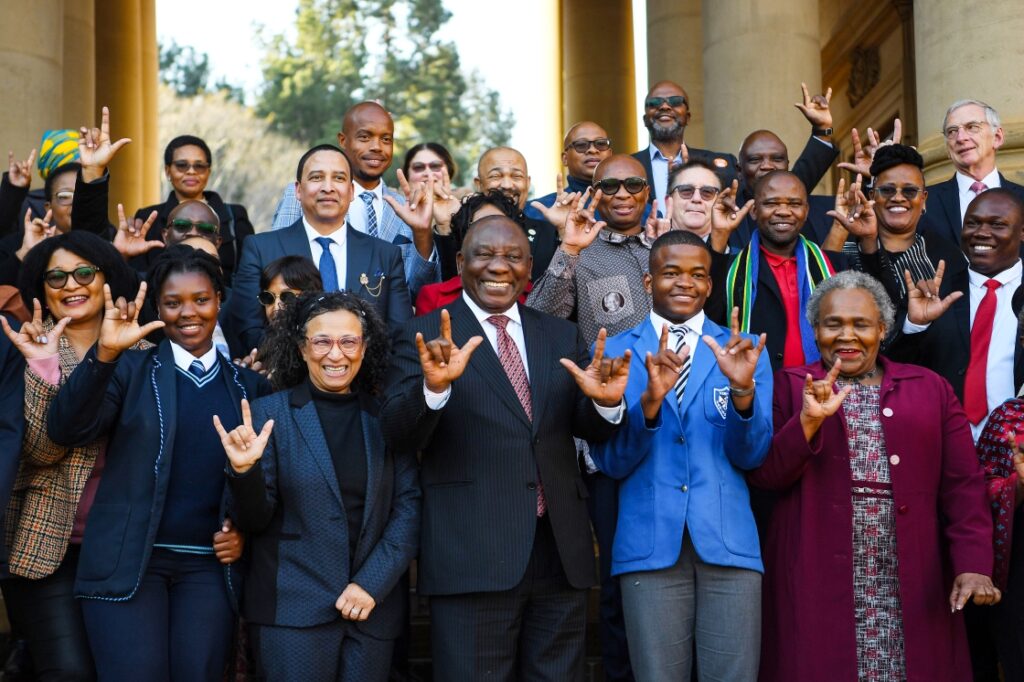July 20, 2023 in Johannesburg, South Africa marked a transformative moment for South Africa’s Deaf community–after a 30-year battle, the country now recognizes Sign Language as its 12th official language.
President Cyril Ramaphosa signed the legislation into constitutional law, requiring Sign Language to be accessible everywhere alongside isiZulu, Afrikaans, English, et.all. His monumental decision received resounding enthusiasm from citizens who have long advocated for the linguistic rights of the Deaf population.

How it began
For the past 30 years, schools, hospitals, businesses and public services were not legally obligated to provide sign language. This created a situation which created barriers to medical services, public transportation, and obtaining an education.
President Ramaphosa’s commitment to inclusivity and protecting the rights of the Deaf community manifested in this historic legislative move. However, the journey was marked by challenges–biggest of all was South Africa’s limited access to education for Deaf individuals.
South Africa has a total of 40 Deaf schools, only one advanced institution is fully equipped for Deaf students. As the nation looks forward, there is a shared determination to enhance access to opportunities for the Deaf community. One of those dedicated is interpreter-speaker Andiswa Gebashe.
The Activists Involved

Gebashe is a CODA, activist, and professionally trained South African Sign Language interpreter for President Ramaphosa. Hired during the COVID-19 pandemic, she interprets President Ramaphosa’s public announcements and press conferences. At the conference, she independently spoke of the richness of Sign Language and stressed the need for its ongoing development for the betterment of the entire country.
The one who pushed the hardest
However, the one who pushed hardest is politician and long-time activist Wilma Newhoudt-Druchen, South Africa’s only Deaf member of Parliament.
After graduating from Gallaudet University with a law degree, she entered politics and secured a seat in South Africa’s Parliament, becoming the first Deaf woman to serve. Newhoudt-Druchen stated that linguistic access was a long time in the making and a very much needed constitutional recognition.

Going Forward
Recognizing Sign Language will help South African schools get more funding to improve their education systems, students will be able to advance their education, and public services will have accessibility.
The significance of this recognition reverberates beyond South Africa’s borders; only forty-one countries worldwide officially recognizes Sign Language.
Of the forty-one, only four are in Africa: Kenya, Uganda, Zimbabwe, and now South Africa.

Sources:
South Africa: Sign Language Officially the 12th Official Language – All Africa
South Africa’s recognition of sign language signals new hope for the deaf – Reuters



